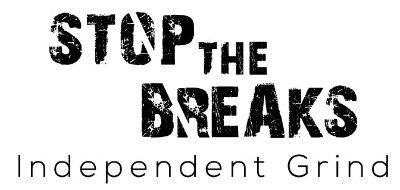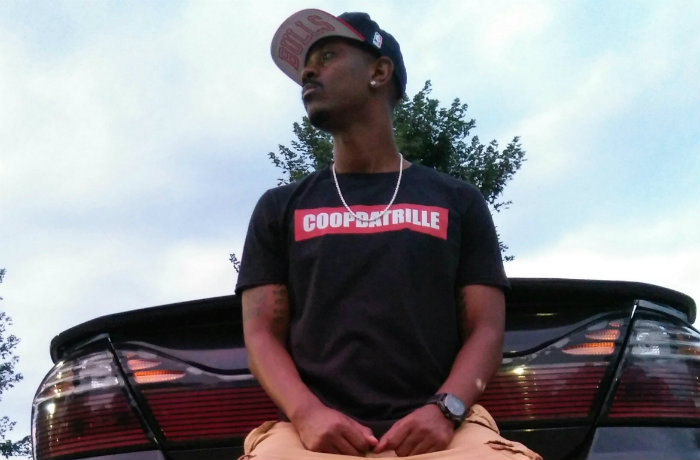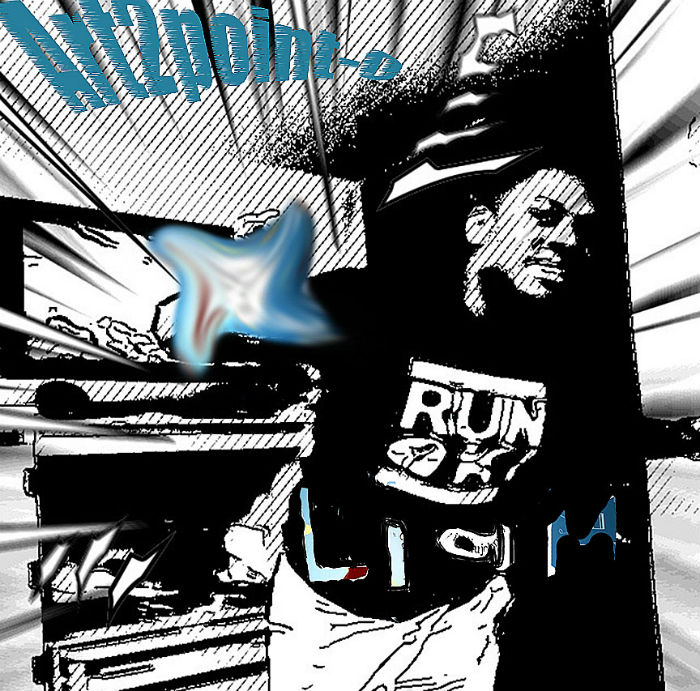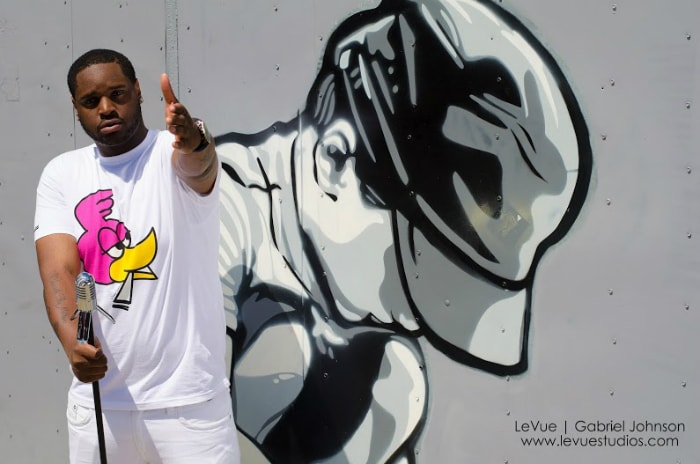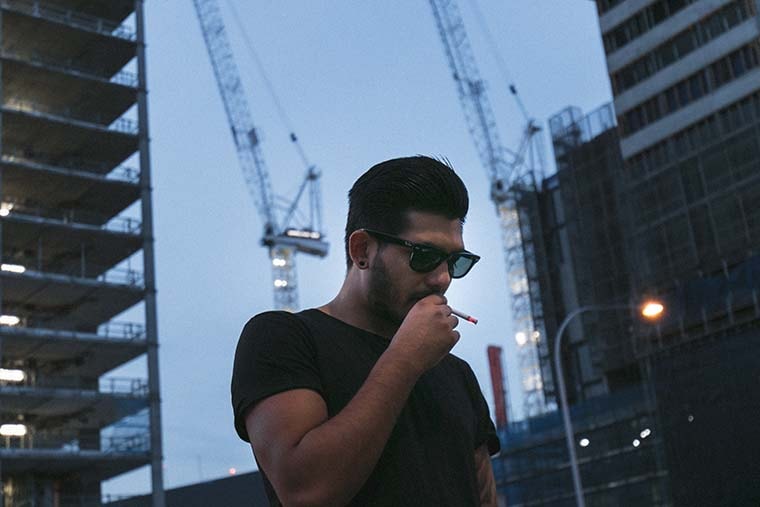
Born in Dhaka, Bangladesh, Saif’s perspective was heavily influenced by conditions of what he saw on the streets in the third world. Later moving to Auckland, New Zealand, he learned English while doing most of his primary school education there.
Finally arriving to Sydney, Australia, we find him as one of the prominent emcee’s coming up in the tight-knit hip hop community. Heavily influenced by, Blu & Exile, Nas , Mos Def, Lowkey & Immortal Technique, Saif delivers eloquent poetry juxtaposed by critical lyricism.
Saif began writing at the age of 12, mostly writing bars to battle his friends at school and later went into writing songs in his English book sitting back of the class. He later started making music in 2011, dropping two mixtapes, Rhyme Therapy (2013), Voyage X (2014) and then his debut LP, Blue City (2016).
1) Talk to me about the making of your latest project. What was the inspiration behind it?
The inspiration was my life. I felt like I had a lot that I needed to write and share with the world. I find it fascinating how connected people can become through music and I felt my experience could help or inspire someone else who may be going through a similar journey.
I’ve always been a lover of conscious hip hop and growing up I’ve looked up to emcees who had great lyrical and poetic calibre. So I wanted to make something for myself with inner lyrical depth and back it up with some real soothing beats. I think the album that inspired me as a complete form would be Isaiah Rashad’s album ‘Cilvia Demo’.
2) With the music industry tanking and record sales falling, how do you currently make money as an independent hip-hop artist?
Music for me was never about money, sure it would be great to do this and only this, but even if that cannot be achieved it doesn’t take away the merit I receive from having people truly relate and appreciate my music.
Money from this medium although generally comes from people purchasing the album or gigs that I perform at around Sydney.
3) From a business point of view, which artists in the game do you think are really pushing the boundaries and changing it up?
I see L-Fresh and N3 – The Viking doing really well in the industry. I’ve seen both of these talented musicians come up through the scene and witnessed them persevere through the resistance that is felt within this industry.
4) What business lessons have you learnt from the music industry so far?
It’s not really business lessons that I’ve learnt but more so communication lessons. I think just getting yourself out of your comfort zone is a blessing in disguise itself, also, learning how to network with people within the scene was a big one for me.
I’ve met a lot of photographers, musicians, artists, dancers, videographers, poets, and venue managers through this platform. I think understanding how to communicate with each discipline and appreciating that collaboration has been the most fruitful lesson.
5) What do you love about hip-hop music?
My first album I fell in love with was the Marshall Mathers LP, I didn’t understand the complexity of the music then, but it was just really cool to listen to. I went onto Tupac – Better Days album and I think that’s when an emotional understanding of the music really nurtured.
I have always been a poet, writer, whatever you want to call it, I was writing since the age of 12. I think Hip-Hop really integrated within me as the art of an emcee was to convey a message across. I love how there are so many diverse artists who have such different perspectives but use the same tools to get their stories across.
That’s the beauty of our music, it transcends worldly labels. I also think Hip Hop is the lonely/troubled man’s friend, Hip Hop when lyrically sharp and fruitful can be a great teacher, which is why I will always love the art.
6) What still surprises you about hip-hop?
Just the level of lyricism and artistry within the element. Hip Hop always amazes me, anything new that bumps hard or has a deep message or a new graffiti artist with obvious skills will always catch me by surprise and take from me my time.
I still rather hear a new album from a dope artist that really gives me soul food rather than get something material I can hold in my hands.
7) If you had the power to change one thing about the hip-hop industry to help independent artists – what would it be?
I would give more opportunities for artists to perform. The scene is pretty small here in Sydney and it tends to get repetitive. It would be great if artists had the freedom to meet with venue managers or other artists that organise events and make that conversation easy.
I think getting to that conversation is the difficult part, so it would be great to see more open integration for artists and event organisers.
8) Who do you think are top 3 rappers doing it at the moment?
To me, it’s always about how connected I feel listening to someone else’s music. Everything else attached to their image or net worth is secondary. That being said, I couldn’t go past, J Cole, Kendrick Lamar and Isaiah Rashad.
9) So what are your plans for the future?
I’m currently working on another project which I think should be out early 2018. Other than that, it’s always about networking and performing hip hop live.
